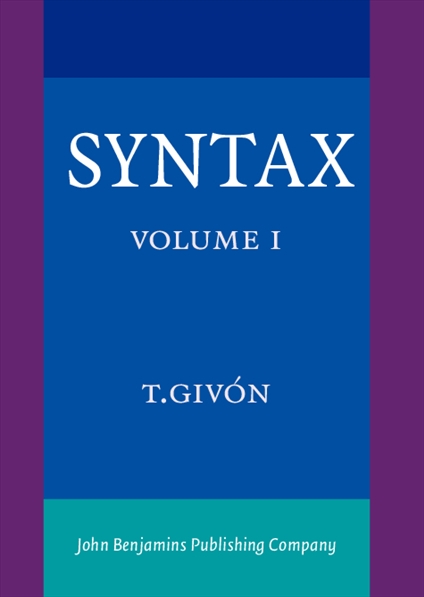
This new edition of Syntax: A functional-typological introduction is at many points radically revised. In the previous edition (1984) the author deliberately chose to de-emphasize the more formal aspects of syntactic structure, in favour ...
This new edition of Syntax: A functional-typological introduction is at many points radically revised. In the previous edition (1984) the author deliberately chose to de-emphasize the more formal aspects of syntactic structure, in favour of a more comprehensive treatment of the semantic and pragmatic correlates of syntactic structure. With hindsight the author now finds the de-emphasis of the formal properties a somewhat regrettable choice, since it creates the false impression that one could somehow be a functionalist without being at the same time a structuralism. To redress the balance, explicit treatment is given to the core formal properties of syntactic constructions, such as constituency and hierarchy (phrase structure), grammatical relations and relational control, clause union, finiteness and governed constructions.
At the same time, the cognitive and communicative underpinning of grammatical universals are further elucidated and underscored, and the interplay between grammar, cognition and neurology is outlined. Also the relevant typological database is expanded, now exploring in greater precision the bounds of syntactic diversity. Lastly, Syntax treats synchronic-typological diversity more explicitly as the dynamic by-product of diachronic development or grammaticalization. In so doing a parallel is drawn between linguistic diversity and diachronist on the one hand and biological diversity and evolution on the other. It is then suggested that ? as in biology ? synchronic universals of grammar are exercised and instantiated primarily as constraints on development, and are thus merely the apparent by-products of universal constraints on grammaticalization.
Read Full Description >>
|
ISBN: 9789027225771 |
£105.00 |
